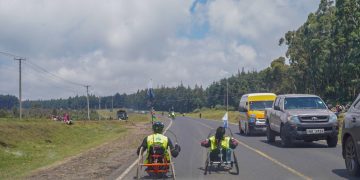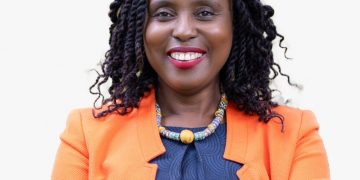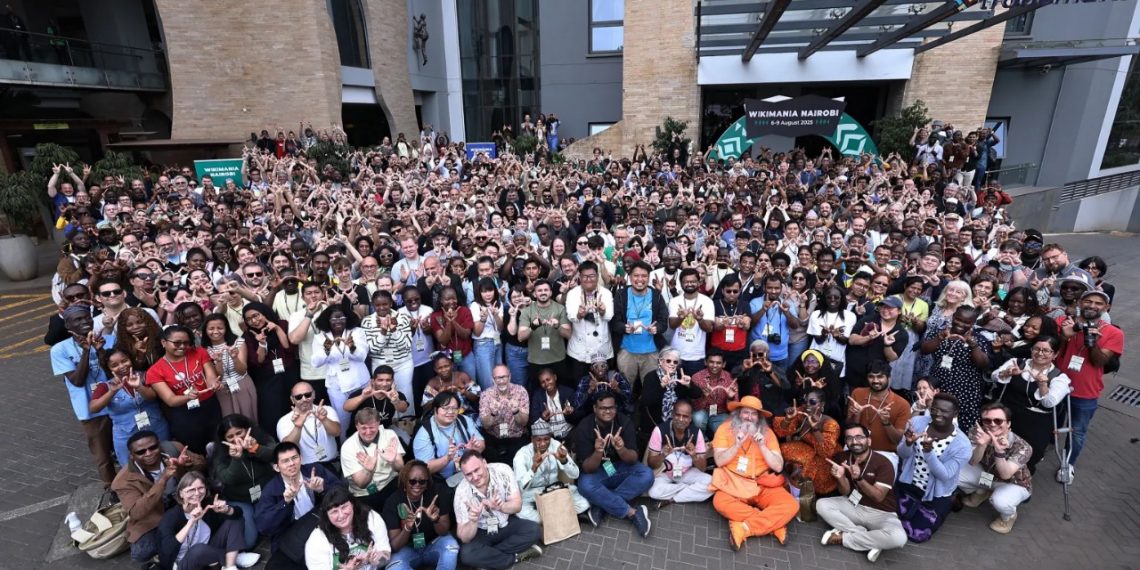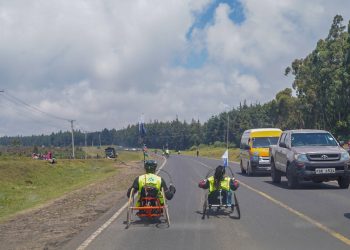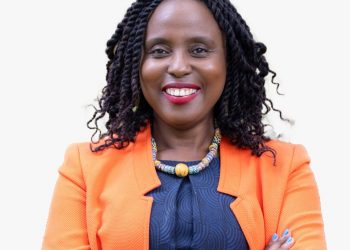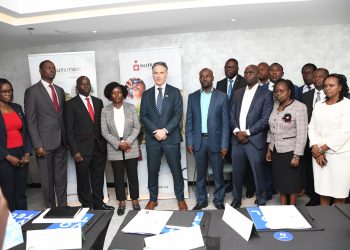Wikimania, the annual conference that celebrates Wikipedia and its sister projects, drew to a close last week after four days of spirited discussions, cultural exchanges, and celebrations of a two-decade legacy of open knowledge.
Hosted for the first time in East Africa, Wikimania 2025 brought together over 2,300 participants from around the globe — 776 of them in person and more than 1,600 joining online — in a hybrid format that highlighted the enduring strength and adaptability of the Wikimedia movement.
This year’s theme, “Wikimania@20: Inclusivity. Impact. Sustainability.”, underscored a forward-looking vision: ensuring the future of Wikimedia projects by fostering intergenerational engagement, ethical innovation, and long-term community resilience.
The Wikimedia ecosystem, home to Wikipedia, Wikimedia Commons, Wikidata, and other open knowledge platforms, thrives on the contributions of nearly 300,000 volunteers. These individuals — known as Wikimedians — collaboratively create, edit, and curate information that is viewed more than 22 billion times every month.
“Wikipedia alone is edited in over 300 languages by nearly 260,000 contributors every month,” said Maryana Iskander, CEO of the Wikimedia Foundation, during her address. “It’s an extraordinary testament to what collective intelligence, transparency, and open debate can achieve.”
Indeed, the platform’s signature consensus-driven editing process — where contributors from around the world negotiate content based on factual reliability and neutrality — was hailed repeatedly throughout the conference as a model for democratic knowledge creation.
This year’s Wikimania spotlighted East Africa’s growing role in shaping the future of open-source knowledge, with nearly 48percent of attendees under the age of 34. Young, first-time contributors mingled with veteran editors and community leaders, reflecting a generational bridge that has become increasingly vital to the movement’s sustainability.
Sessions covered a wide range of initiatives, from new strategies in community governance and inclusive language preservation efforts, to cutting-edge technology projects pushing the boundaries of Wikimedia tools.
“Bringing generations together isn’t just symbolic — it’s essential,” said a community organizer from Uganda. “The next wave of contributors is already here. They’re enthusiastic, curious, and driven to make a difference.
Among the most anticipated moments of Wikimania 2025 was the Wikimedian of the Year Awards, where Wikipedia founder Jimmy Wales honored eight outstanding individuals for their contributions to the movement. These volunteers — representing countries across multiple continents — were recognized for their work in areas like content creation, community organizing, and expanding access to knowledge in underrepresented languages.
Another standout moment came during a keynote panel on Artificial Intelligence, featuring leading African tech thinkers like Dr. Joyce Nakatumba-Nabende and Prof. Vukosi Marivate. The discussion, which can be rewatched online, explored how open knowledge communities can stay aligned with their core values while adapting to an AI-driven world.
Other notable sessions included collaborations with the United Nations to expand global accessibility, partnerships with libraries to preserve knowledge, and efforts to protect endangered languages through Wikimedia platforms.
As the conference came to a close, Wikimedia Foundation CEO Maryana Iskander offered a call to action.
“Wikimania is a celebration of 20 years of collaboration and the incredible contributions that have made our movement strong and successful,” she said. “As we look ahead to Wikipedia’s 25th birthday, the question for all of us is: what does the next generation need, and how will we build on the success of the past quarter.
With Nairobi’s energy still fresh in attendees’ minds, planning has already begun for Wikimania 2026, to be hosted in Paris, France, in a hybrid format. The event will coincide with Wikipedia’s 25th anniversary — a milestone moment for the world’s largest free knowledge resource.
From a university classroom in Kampala to a library in Kolkata, from a phone screen in Rio to a conference hall in Nairobi, the message of Wikimania 2025 was clear: knowledge belongs to everyone — and the future is being written now.



